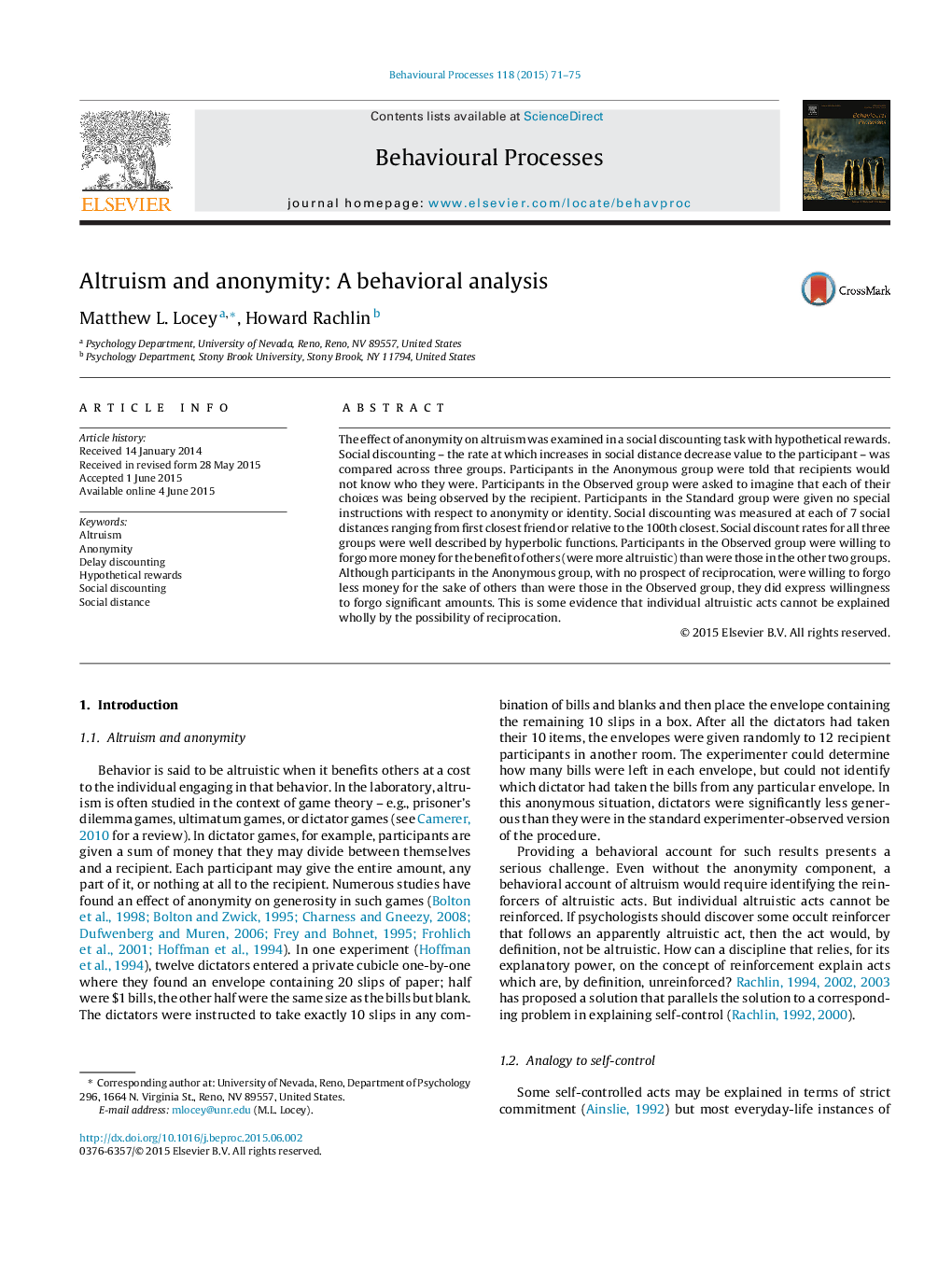| Article ID | Journal | Published Year | Pages | File Type |
|---|---|---|---|---|
| 2426571 | Behavioural Processes | 2015 | 5 Pages |
•Three groups of undergraduates completed a social discounting task.•Hypothetical recipients were either anonymous, observing, or not specified.•A hyperbolic social discounting function well-described data from each group.•Observed-group participants were more altruistic than those in both other groups.
The effect of anonymity on altruism was examined in a social discounting task with hypothetical rewards. Social discounting – the rate at which increases in social distance decrease value to the participant – was compared across three groups. Participants in the Anonymous group were told that recipients would not know who they were. Participants in the Observed group were asked to imagine that each of their choices was being observed by the recipient. Participants in the Standard group were given no special instructions with respect to anonymity or identity. Social discounting was measured at each of 7 social distances ranging from first closest friend or relative to the 100th closest. Social discount rates for all three groups were well described by hyperbolic functions. Participants in the Observed group were willing to forgo more money for the benefit of others (were more altruistic) than were those in the other two groups. Although participants in the Anonymous group, with no prospect of reciprocation, were willing to forgo less money for the sake of others than were those in the Observed group, they did express willingness to forgo significant amounts. This is some evidence that individual altruistic acts cannot be explained wholly by the possibility of reciprocation.
